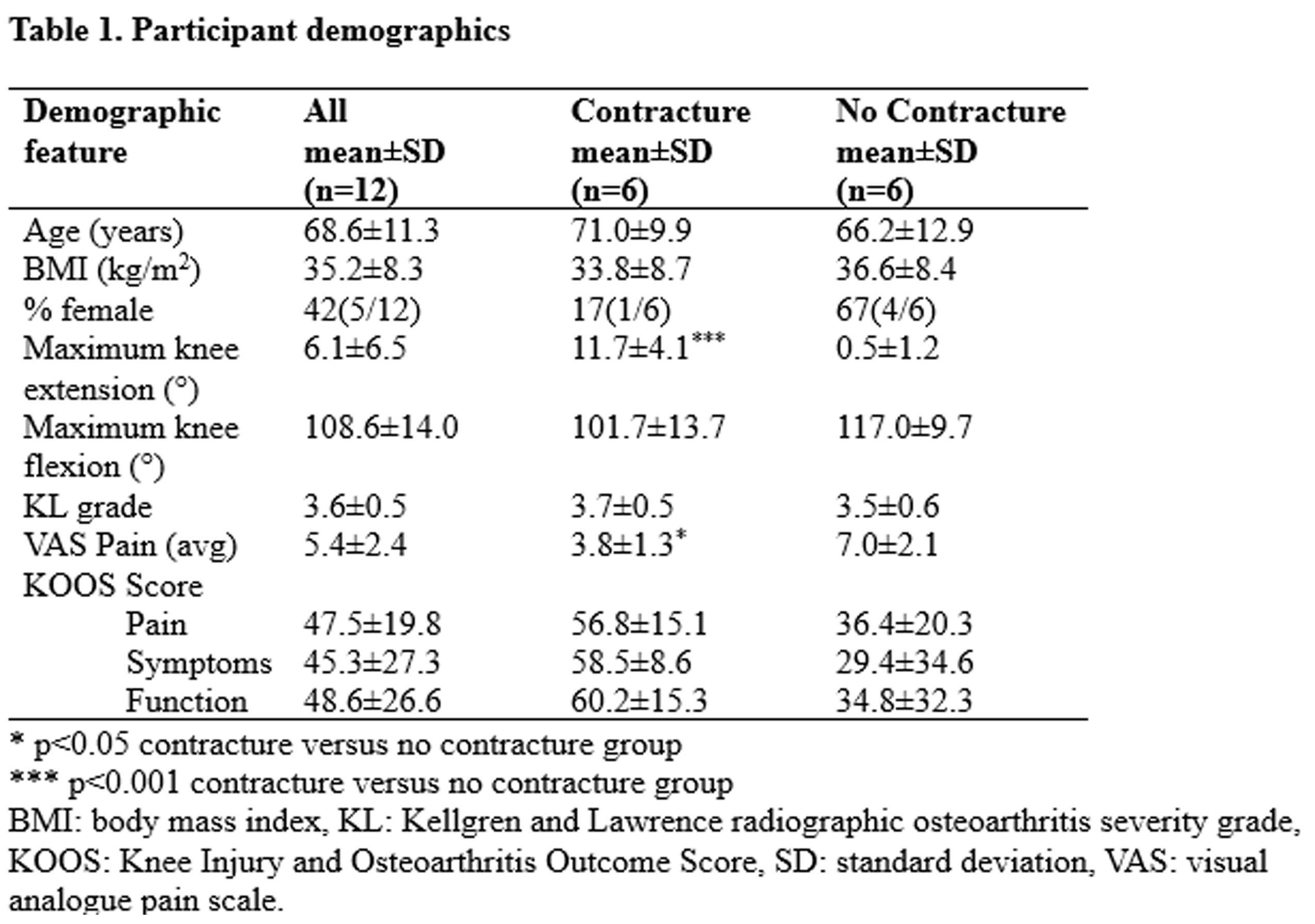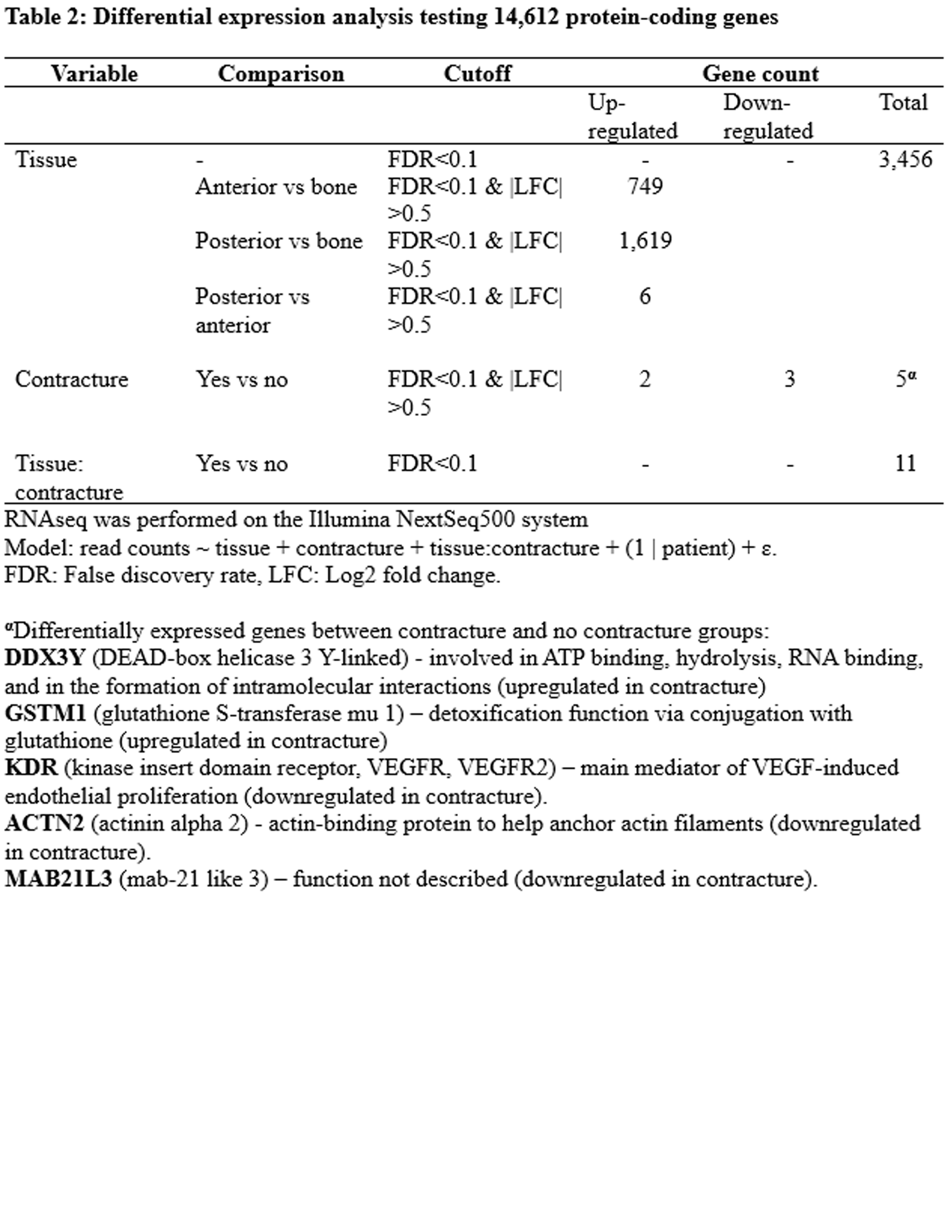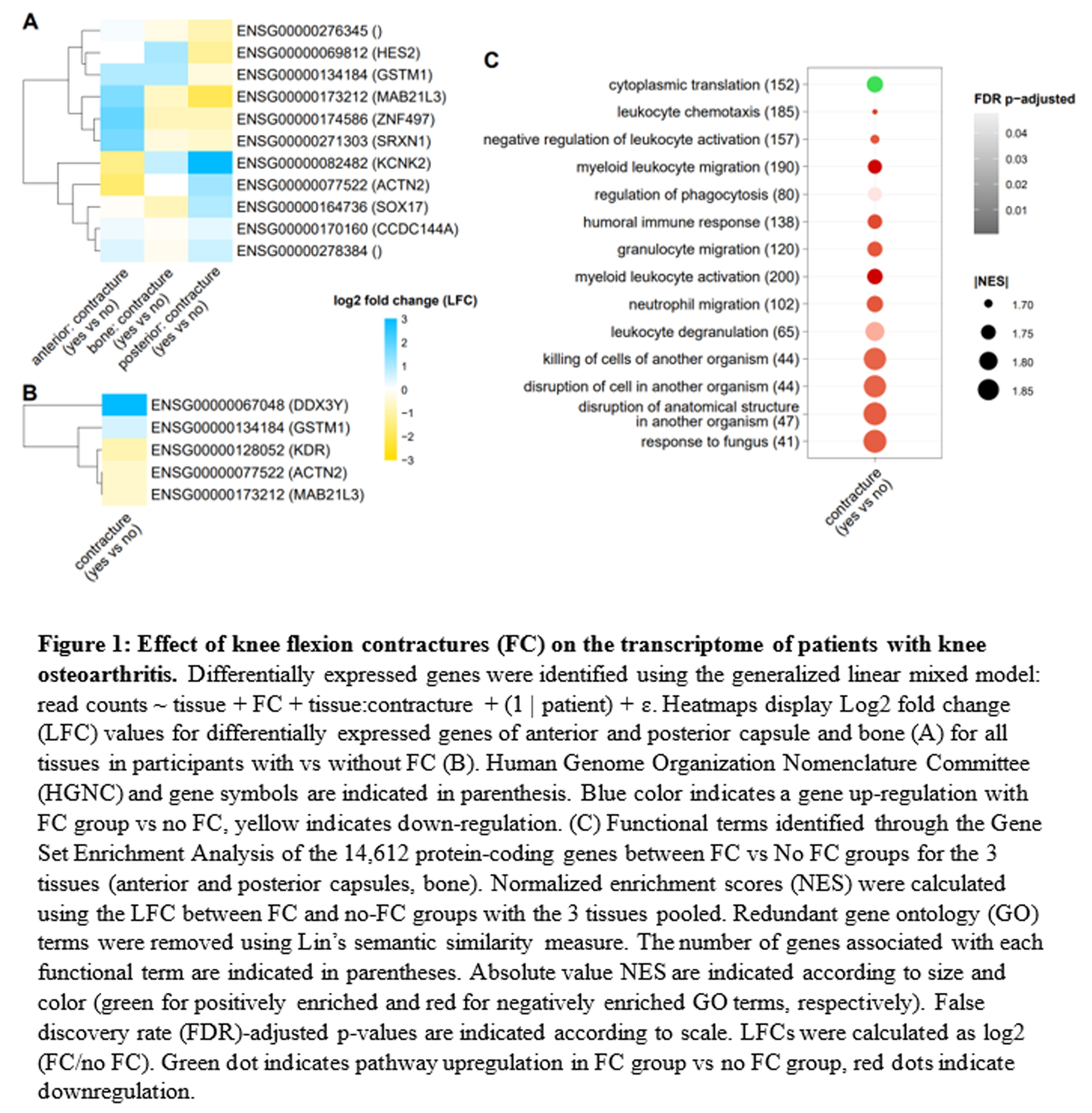Session Information
Session Type: Poster Session A
Session Time: 10:30AM-12:30PM
Background/Purpose: Over 10% of adults have symptomatic knee OA but no disease-modifying interventions exist. A flexion contracture (loss of extension; FC) presents in 1/3 of people with knee OA and is associated with increased morbidity.1 Animal experimentation and human observation support that capsule fibrosis contributes to FC in knee OA2. Capsule fibroblasts and their mesenchymal stromal cell (MSC) precursors may therefore contribute to worse OA outcomes. Our objectives were to examine the full-genome expression of fibroblasts and MSCs in the posterior and anterior joint capsules, and identify genes and pathways associated with knee FC in OA.
Methods: People with OA scheduled for knee arthroplasty (TKA) were divided into two groups (both n=6) based on the presence or absence of FC in the affected knee. Biopsies of the anterior and posterior capsule as well as femoral bone were collected during TKA. Tissues were digested, and cells were allowed 3 days to adhere to plastic prior to RNA isolation. Non-adherent cells were discarded. The transcriptomes of the 3 tissues (anterior capsule, posterior capsule, and femoral bone) were compared. Functional enrichment of differentially expressed genes identified represented biological processes.
Results: Participant demographics are shown in Table 1. Plastic-adherent cells from all 3 tissues demonstrated spindle-like morphology and expressed fibroblast-specific protein 1 (FSP-1) after differentiation towards fibroblast lineage. Plastic-adherent cells were CD31–CD45– and roughly 40% met the ISCT definition for MSCs. Analysis identified differentially-expressed protein-coding genes and tested for the effects of FC on the transcriptomes (Table 2, Figure 1A). Among protein-coding genes, the expression of DDX3Y (involved in ATP and RNA binding) and GSTM1 (detoxification-related) were upregulated with FC, while KDR (vascular endothelial growth factor receptor), ACTN2 (assists in actin binding) and MAB21L3 (function uncertain) were downregulated (Table 2, Figure 1B). Differentially-expressed genes from the 3 tissues of patients with FC identified gene ontology terms mostly related to decreased immune processes (Figure 1C).
Conclusion: Fibroblasts and MSCs from joint capsule and bone in people with end-stage knee OA and FC demonstrated altered expression of genes associated with molecular binding and pain-associated paracrine function, as well as downregulation of gene pathways associated with immune function. Knee FC may signal cellular gene expression alterations associated with OA symptoms and disease progression. Beyond simply restoring lost ROM, treating FC may represent an underappreciated target towards reducing morbidity and disease progression in people with knee OA.
To cite this abstract in AMA style:
Laneuville O, Stratis D, Feibel R, Trudel G, Campbell T. Transcriptomic Characterization of Knee Capsule Fibroblasts and Mesenchymal Stromal Cells Reveals an Association Between Flexion Contracture and Alterations in Immune Pathways in People with End-stage OA [abstract]. Arthritis Rheumatol. 2024; 76 (suppl 9). https://acrabstracts.org/abstract/transcriptomic-characterization-of-knee-capsule-fibroblasts-and-mesenchymal-stromal-cells-reveals-an-association-between-flexion-contracture-and-alterations-in-immune-pathways-in-people-with-end-stage/. Accessed .« Back to ACR Convergence 2024
ACR Meeting Abstracts - https://acrabstracts.org/abstract/transcriptomic-characterization-of-knee-capsule-fibroblasts-and-mesenchymal-stromal-cells-reveals-an-association-between-flexion-contracture-and-alterations-in-immune-pathways-in-people-with-end-stage/



